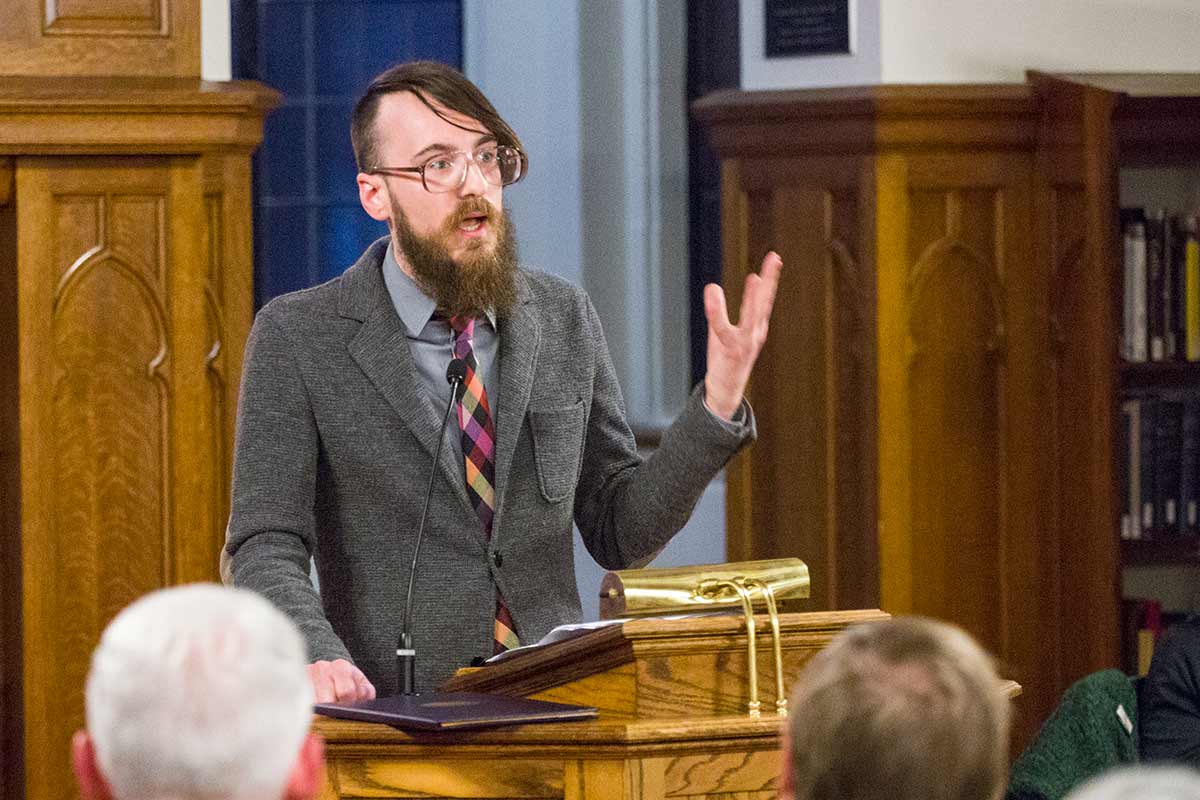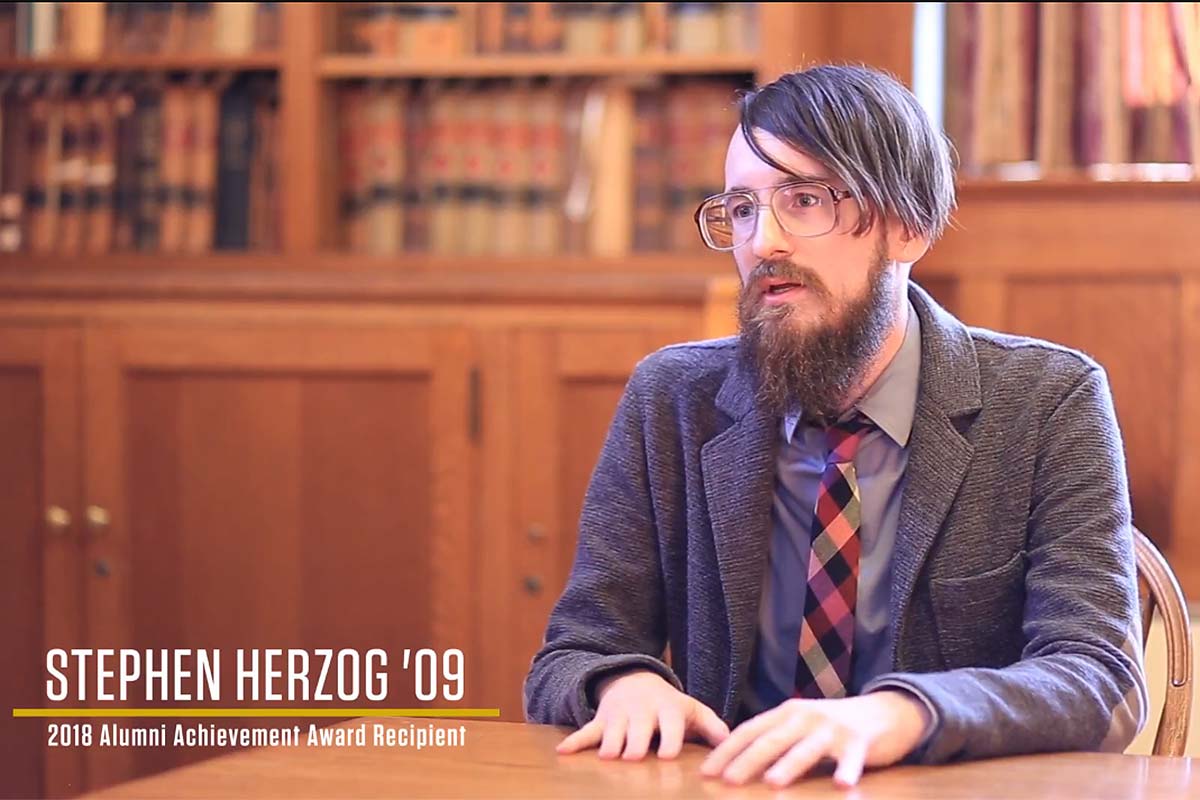
Stephen Herzog didn't land your typical first job after graduating college. Instead, as he worked toward a master's degree in security studies at Georgetown University, he joined the Federation of American Scientists, a think tank founded by former Manhattan Project scientists, as a nuclear arms control and nonproliferation researcher.
From there, he joined the U.S. Department of Energy, where he led an international engagement and training program supporting the Comprehensive Nuclear-Test-Ban Treaty. For four "very busy" years, Stephen led U.S. scientific delegations to dozens of countries and took part in countless negotiations, meetings, and training workshops, all in an effort to help countries build their nuclear test monitoring capabilities. "My role was not to promote a political agenda or encourage treaty ratification," he says. "It was to get scientists and governments to interact with the technical elements of the treaty. The same data used to detect nuclear tests, for instance, can also be used for earthquake hazard mitigation and tsunami warning systems. States can support arms control while also saving lives from deadly natural disasters." For countries reluctant to invest scarce resources in nuclear treaty monitoring, these civil-scientific benefits offered additional incentive to make the investment.
Three years ago, Stephen left the Department of Energy to focus his efforts on studying for a Ph.D. in political science at Yale University, seeing an opportunity to bridge the gaps he witnessed between the academic, policy, and scientific communities. "I'm hoping to be a professor who can function in all of these worlds—these groups have a lot to offer each other, but they're often quite siloed off."

How did you become interested in nuclear security?
My father worked on nuclear issues for the U.S. Navy during the Cold War, and we had books on these topics at home. I also briefly encountered nuclear politics through high school debate. But before arriving in Galesburg, to put it gently, I had a fairly strong aversion to classes and homework. My initial political science and international relations courses changed everything. Professors Karen Kampwirth and Bob Seibert introduced me to regions of interest I had hardly thought about, and Professor Sue Hulett taught me important theoretical and historical concepts to structure my thinking about nuclear weapons. Although I didn't realize it then, they had helped plant the seeds for a future career dealing with the global implications of nuclear weapons. Before Knox, I never knew this was an option.
What words of advice would you offer to current Knox students?
I believe it's critical to find ways to build common ground to solve problems, especially with those who have radically different lenses through which they see the world. This applies to governments and individuals alike. Too often, redlines and polarization prevent solutions from emerging to eminently fixable disagreements. Serious efforts to engage others based on their core motivations and values are central to building the trust and transparency necessary to take on seemingly intractable disputes.